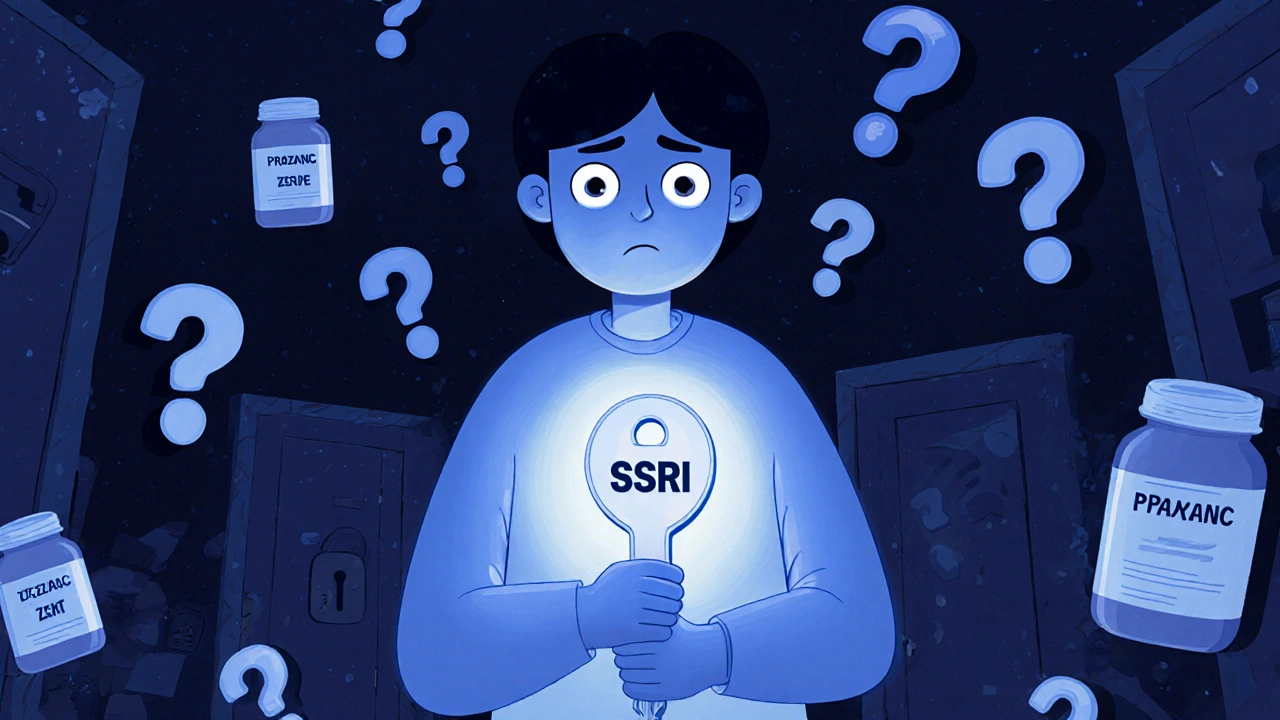OCD Treatment: Effective Methods, Medications, and What Actually Works
When someone has obsessive-compulsive disorder, a mental health condition where unwanted thoughts lead to repetitive behaviors. Also known as OCD, it’s not just about being neat—it’s about being trapped in cycles of fear and ritual that drain energy and joy. Millions live with this silently, thinking they’re just ‘overly careful’ or ‘a little anxious.’ But OCD is real, measurable, and treatable—not a personality quirk.
The two most proven tools for OCD treatment are medication and therapy. SSRIs, a class of antidepressants that boost serotonin to calm obsessive thoughts. Also known as selective serotonin reuptake inhibitors, they’re the first-line drug choice for most adults and teens with OCD. Drugs like sertraline, fluoxetine, and escitalopram don’t work overnight, but after 8–12 weeks, many see real drops in compulsions. Then there’s cognitive behavioral therapy, a structured, evidence-based approach that rewires how the brain responds to fear. Also known as CBT, it’s not talk therapy—it’s a workout for your thoughts. The core technique inside CBT is exposure therapy, gradually facing feared situations without doing rituals. Also known as ERP, it’s the gold standard for breaking the OCD loop. You don’t need to touch a dirty toilet to start—you start small. A shaky hand near a doorknob. A 5-second pause before washing. These aren’t easy, but they work better than any pill alone.
Many people try OCD treatment and quit too soon because they don’t see instant results. Others mix herbal supplements or unproven diets, hoping for a shortcut. But the science is clear: SSRIs plus ERP give the best long-term outcomes. Some people need both. Some need higher doses. Some need to switch meds. And some need to stick with therapy even after symptoms fade, to prevent relapse.
The posts below cover what you won’t hear in a 5-minute doctor’s visit: how to tell if a side effect is just a nuisance or something dangerous, why some meds interact with common supplements, how to manage withdrawal safely, and what alternatives exist when standard treatments fail. You’ll find real talk about dosing, drug comparisons, and what actually helps people live better—not just survive. No fluff. No hype. Just what works.
OCD Medication Options: SSRIs, Clomipramine, and Dosing Protocols Explained
SSRIs and clomipramine are the two main medications for OCD. SSRIs are first-line due to fewer side effects, while clomipramine is more effective for some but has stronger risks. Dosing is higher than for depression and requires careful titration over weeks to months.
Keep Reading
